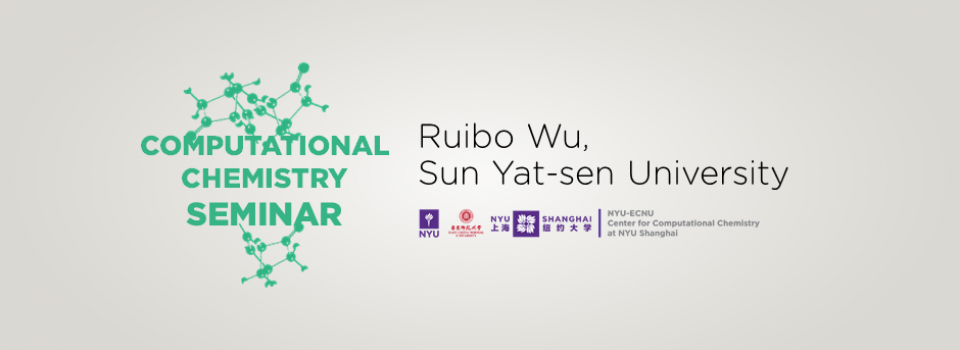
One of the bottlenecks in modern drug discovery is the limitation of the chemical space diversity for drug screening. Biosynthesis is an effective way to enhance the scaffold diversity of chemical libraries. Terpenoids and their derivatives, as the largest class of natural product, are important sources of new drug discovery. Enzymatic catalysis mechanism, which is the central to understand the biogenesis and diversity of terpenoids natural products, would shed bright lights on the rational drug design and protein engineering. Herein, I will talk about how to utilize the two-dimension DFT/MM MD simulations to illuminate the complicated bio-cyclization mechanism of terpenoids under the catalysis of OSC and FPPC. If time permits, I will also share a story on how to design a time-dependent HDAC2 selective inhibitor based on the enzyme catalysis mechanism.
Biography
Dr. Ruibo Wu, is now a full professor in Quantum Medicinal Chemistry at Sun Yat-sen Universtiy (SYSU). He obtained his B.Sc. & Ph.D. from Xiamen University (XMU) at 2006 & 2010. He was a visiting graduate student & did a short-term post-doc research at New York University (NYU) from 2008 to 2011 with Prof. Yingkai Zhang. Then he joined in School of Pharmaceutical Sciences at SYSU in 2011, as an associate professor. His research is focused on multiscale simulations (especially the DFT/MM MD) in medicinal chemistry field. He published about 40 papers including JACS, Angewant, ACS Chemical Biology and ACS Catalysis. He has been awarded 7 grants including NSF-China funding, NSF-Guangdong for Distinguished Young Scholars and Pearl River S&T Nova Program of Guangzhou City, and so on.
Bi-Weekly Seminar Series by the NYU-ECNU Center for Computational Chemistry at NYU Shanghai


